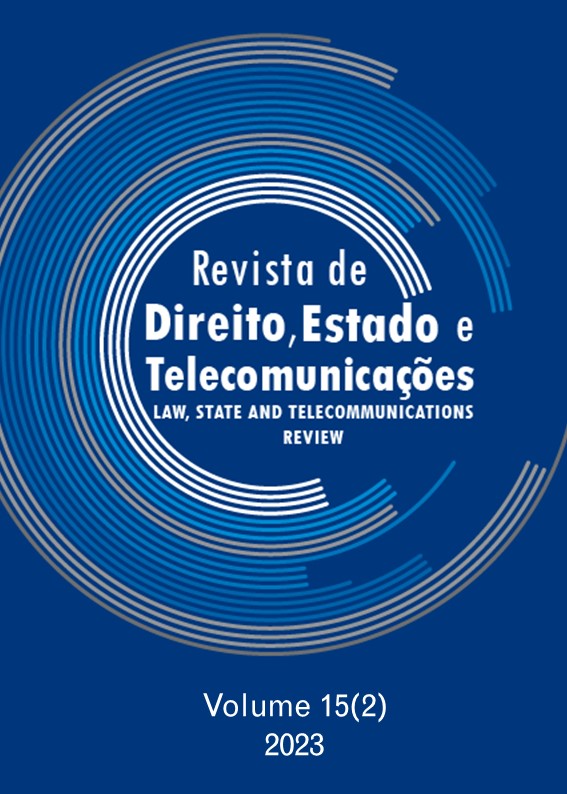The Right to be Forgotten as a Special Digital Right
DOI:
https://doi.org/10.26512/lstr.v15i2.44692Keywords:
Law. Digital Law. Search Engines. Internet Law. Information.Abstract
[Purpose] The purpose of this study is to investigate aspects of digital law in Ukraine and other countries of the world in the context of the right to be forgotten.
[Methodology/Approach/Design] To achieve the objective, induction, deduction, and comparative analysis were used, both the proximate topics and aspects of the legal framework of different countries together with the legal information provided by online services were considered.
[Findings] The study identified the main features of the right to be forgotten in different countries, the impact of the European Union Court of Justice and European Court of Human Rights on it and the little-studied intricacies of the legal aspect of this mechanism.
[Practical Implications] This paper can be of interest both as introductory material and as a basis for further study because there is a growing human need to be able to control personal data in the face of the expanding phenomenon of globalization and digitalization.
Downloads
References
Androschuk, G. (2021). EU Court: Google has won the dispute over the right to forget. https://cutt.ly/cZmrs10.
Antopolsky, A. A. (2019). Human rights and the Internet: the case law of the European Court of Human Rights. Proceedings of the Institute of State and Law of the Russian Academy of Sciences, 14(2), 171-172.
Boyko, A. M. (2018). The right to forget: some aspects of theory and practice. Journal of Eastern European Law, 48, 124-131.
Carter, E. L. (2013). Argentina’s right to be forgotten. Emory International Law Review, 27, 25-31.
Chakraborty, S. (2019). Right to be forgotten – the most recent dispute in data protection. International Journal for Legal Developments & Allied Issues, 1, 86-87.
Convention for the Protection of Human Rights and Fundamental Freedoms. (1950). https://zakon.rada.gov.ua/laws/show/995_004#Text.
Dovgan, E. F. (2018). Human rights in the age of information technology. Journal of the O.E. Kutafin University, 5, 109-125.
Google Spain SL and Google Inc. v Agencia Española de Protección de Datos (AEPD) and Mario Costeja González. (2014). https://eur-lex.europa.eu/legal-content/EN/TXT/?uri=CELEX%3A62012CJ0131.
Guadamuz, A. (2017). Developing a right to be forgotten. In: EU Internet Law: Regulation and Enforcement (pp. 59-76). Cham: Springer.
Judgment M.L. and W.W. v. Germany (2018). https://cutt.ly/xZn4Rpz.
Kalitenko, O.M. (2019). The right to be forgotten: a European or a global achievement? Journal of Civilization, 35, 60-64.
Khelili v. Switzerland. (2011). https://hudoc.echr.coe.int/fre#{%22itemid%22:[%22002-345%22]}.
Razmetaeva, Yu. S. (2018). Formation of new human rights under the influence of IT. IT law: problems and prospects of development in Ukraine. Lviv: Ivan Franko National University of Lviv.
Resolution of the European Parliament and of the Council No. 2016/679 "On the protection of individuals with regard to the processing of personal data and on the free movement of such data, and repealing Directive 95/46/EC (General Data Protection Regulation)". (2016). https://zakon.rada.gov.ua/laws/show/984_008-16#Text.
Resolution of the Parliament of India No. 21 "On digital technologies". (2000). https://uk.upwiki.one/wiki/Information_Technology_Act,_2000.
Varlamova, N. V. (2019). Digital rights – a new generation of human rights? Proceedings of the Institute of State and Law of the Russian Academy of Sciences, 14(5), 9-46.
Voss, W. G., Castets-Renard, C. (2016). Proposal for an international taxonomy on the various forms of the "right to be forgotten": a study on the convergence of norms. https://cutt.ly/SZmthCh.
Voynikanis, E. A. (2016). The right to be forgotten: legal regulation and its theoretical understanding. Jurisprudence, 3, 70-89.
Downloads
Published
How to Cite
Issue
Section
License
Copyright (c) 2023 Law, State and Telecommunications Review

This work is licensed under a Creative Commons Attribution 4.0 International License.
By submitting this paper to the Law, State and Telecommunications Review,
I hereby declare that I agree to the terms of the Creative Commons Attribution 4.0 International (CC BY 4.0).


